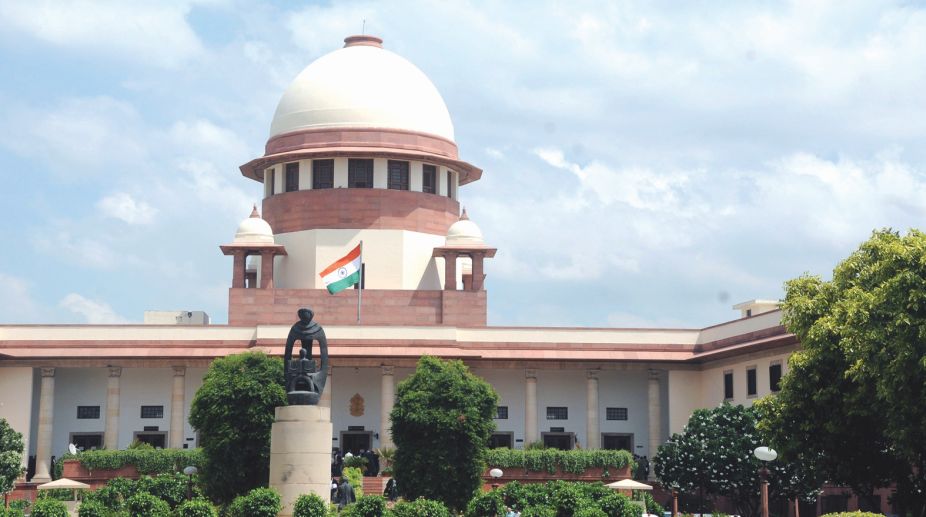India’s Got Latent: SC issues notice on YouTuber Ashish Chanchlani’s plea against FIRs
SC issues notice on YouTuber Ashish Chanchlani’s plea to quash or transfer FIR in India’s Got Latent case; tagged with Ranveer Allahabadia’s petition.

Supreme Court of India (Photo: IANS/File)
The Supreme Court said on Monday that when two adults marry, no one can interfere with or disturb them and told khap panchayats not to act as society’s “conscience-keepers”.
A bench of Chief Justice Dipak Misra and Justices A M Khanwilkar and D Y Chandrachud said, “You don’t have to play the conscience keeper of the society. Law and courts will take care of all relationships.”
Advertisement
“Whether it is parents, society or anyone, they are out of it. No one, either individual or collective, or group, has the right to interfere with the marriage,” said the Chief Justice.
The apex court also mulled over the idea of a police authority, on the lines of the one commissioned to end cow vigilantism, to keep couples out of harm’s way.
Advertisement
Last month, the SC, protecting the rights of couples marrying outside their caste said that “no khap panchayat or society can question” an adult man or woman’s decision to opt for inter-caste marriage.
“What we are concerned with is that if an adult girl or boy gets into marriage, no khap, no individual or no society can question them,” the court had said. The apex court had also termed any attack by ‘khap panchayat’ or associations on the couples, who marry outside their caste, as “absolutely illegal”.
“Whenever there is any kind of collective attack on a boy or girl who is an adult, it is absolutely illegal,” the court had said. The bench had asked the Centre to give its response on suggestions earlier given by amicus curiae Raju Ramachandran on ways to prevent harassment and killing of young couples in the name of family honour for marrying inter-caste or intra-clan (gotra).
The apex court had sought suggestions from an NGO ‘Shakti Vahini’, which has asked for a ban on such crimes and on “khap panchayats” or self-appointed village courts in parts of north India, especially Haryana, which act like a law unto themselves and “punish” couples who marry against their families’ wishes.
A lawyer for Khap Panchayats told the top court they are against such killings. “We are not concerned with the Khap Panchayat. We are only concerned with the rights of a couple to get married. Whether marriage is good or bad or is it advisable, we are out of it,” the court said.
“Khap panchayats” or self-appointed village courts in parts of north India, especially Haryana, believe it is their duty to protect medieval-era traditions and act like a law unto themselves while “punishing” couples who marry against their families’ wishes.
These caste or community organisations in villages at times act as quasi-judicial bodies and pronounce harsh punishments based on regressive and age-old customs and traditions.
In 2010, the NGO had moved the top court seeking directions to the central and state governments to prevent and control honour crimes by taking a number of measures.
The apex court had invited ‘khap panchayats’ to hear their views before issuing an order to stop them from harassing and killing couples and women in the name of honour.
The top court had also said that as a pilot project, it would examine the situation in three districts of Haryana and Uttar Pradesh where ‘khap panchayats’ were active.
Advertisement